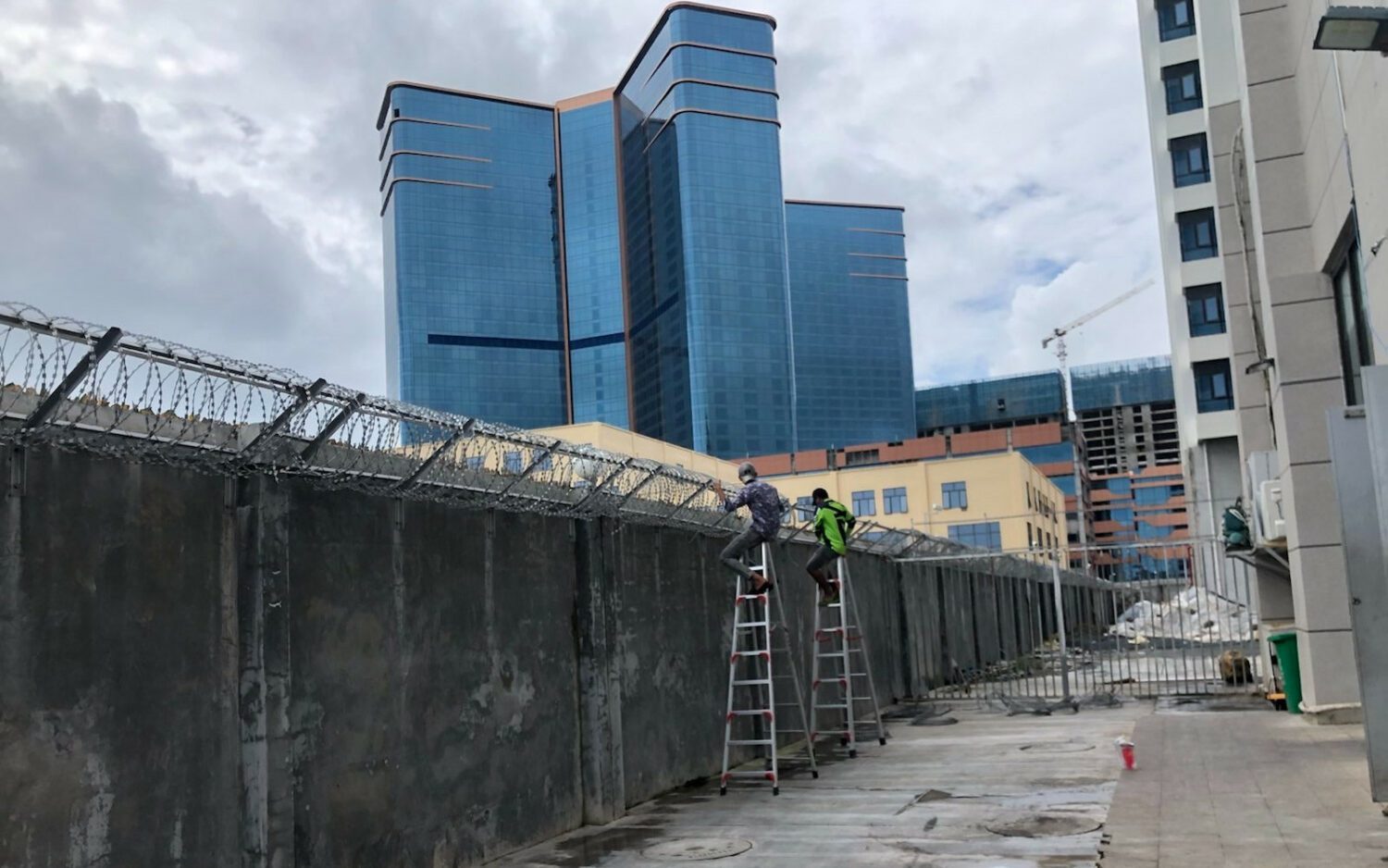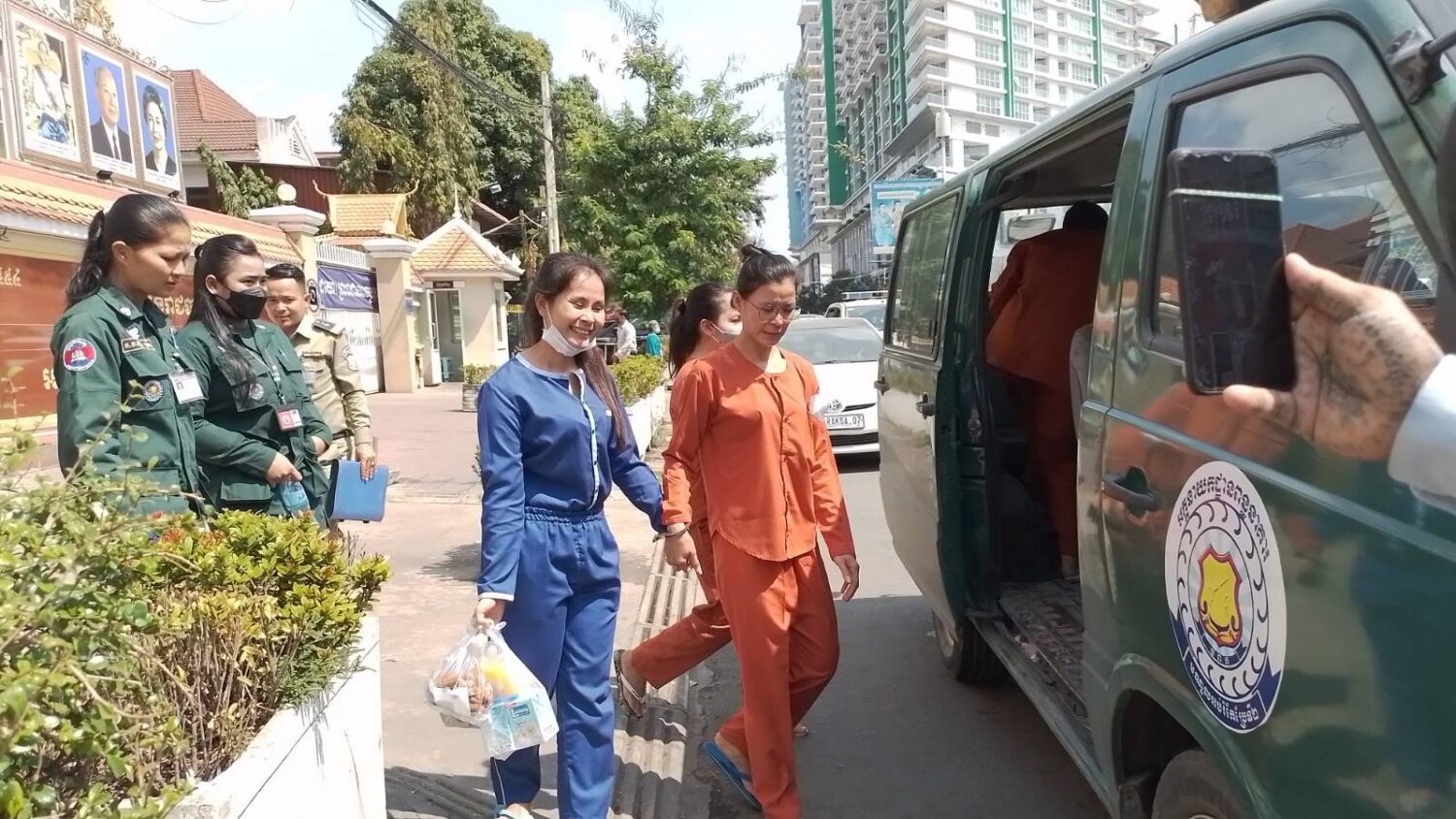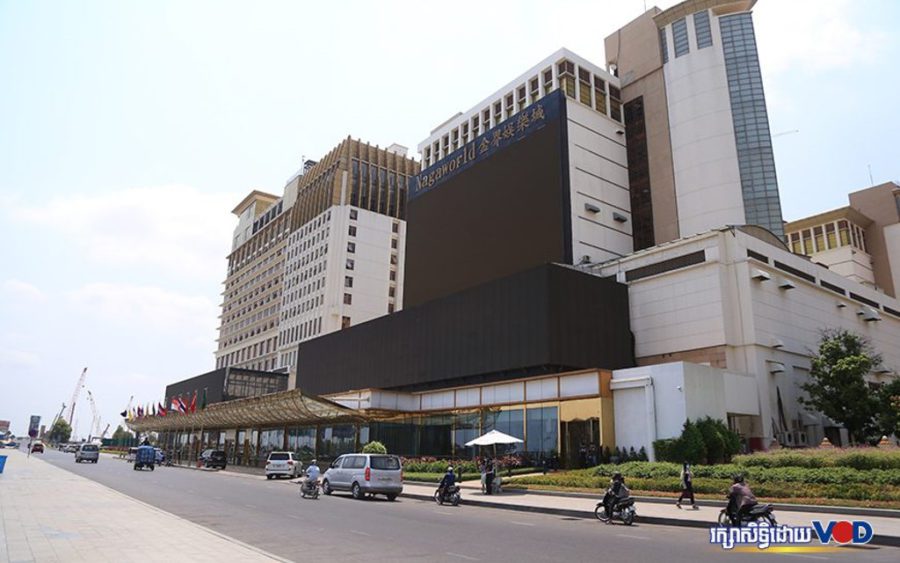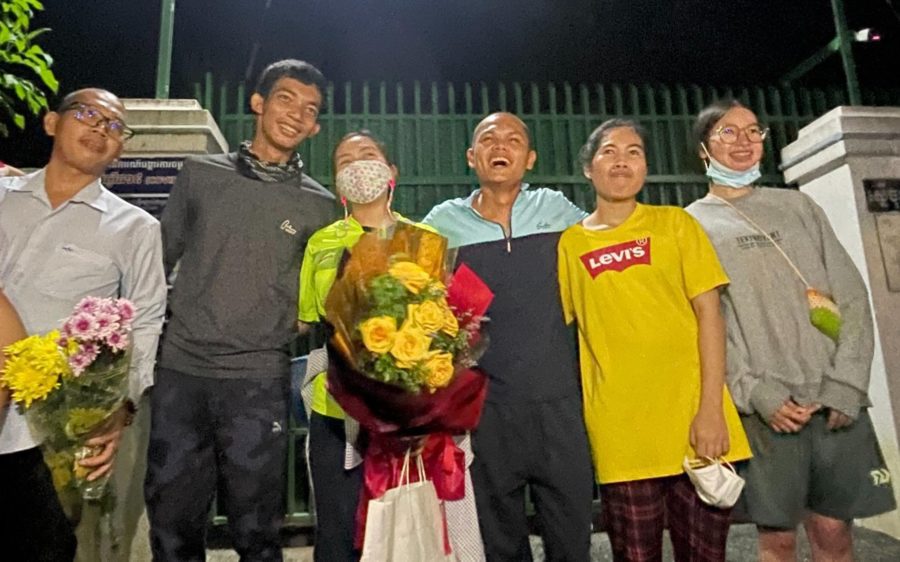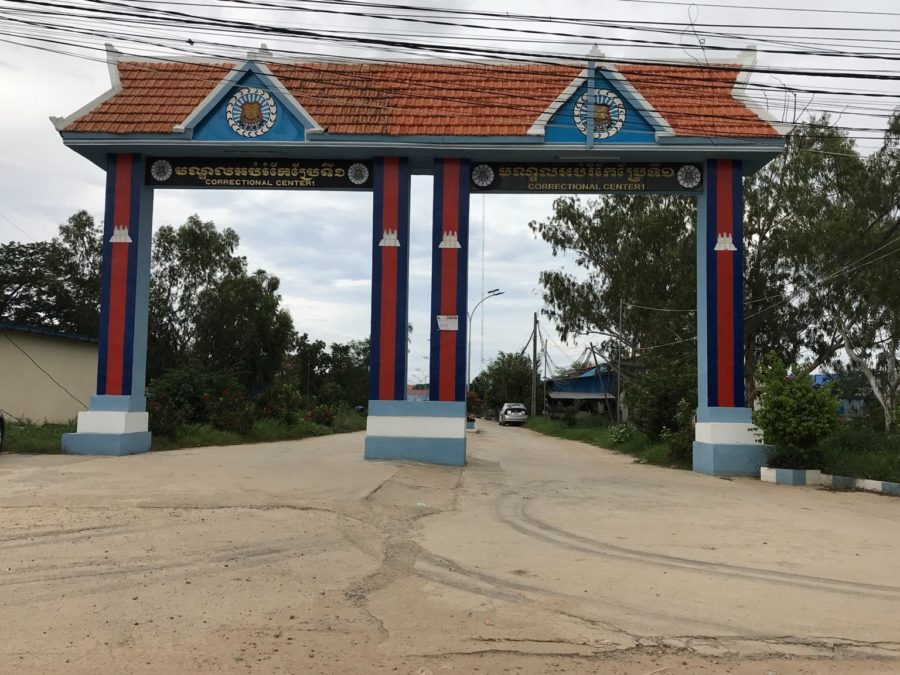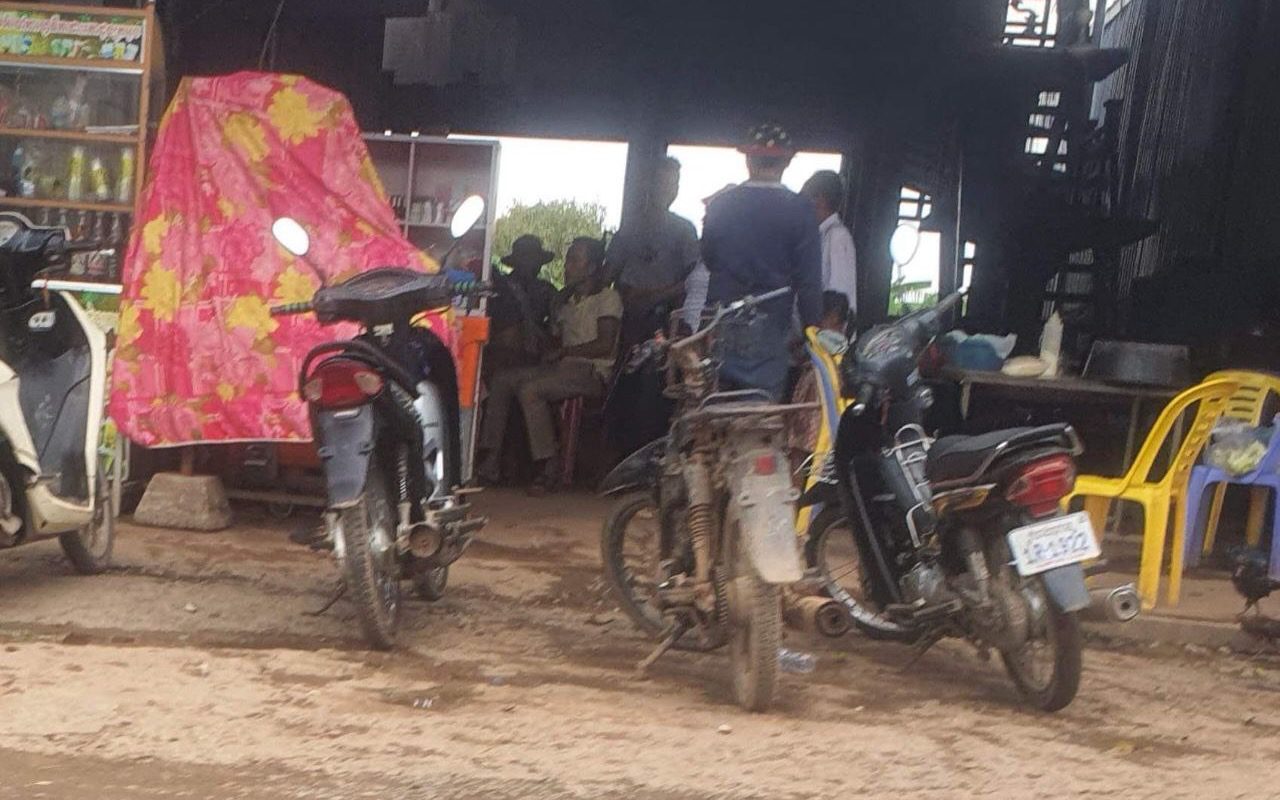Cambodia pledged “drastic measures” against scam compounds in response to U.N. queries about 100,000 alleged human trafficking victims in Sihanoukville, but also denied finding any debt bondage and placed the country’s “reputation, dignity and benefits” at the top of its principles for combating the crime.
The government sent two responses to the U.N. in November after U.N. experts on modern slavery and human trafficking sought clarification over 100,000 alleged victims in Sihanoukville and raised concerns about forced labor, forced criminality, sexual exploitation, debt bondage and physical and psychological abuse.
The experts said in September that it had serious concerns about ongoing reports on the scam compounds, which found scores of victims calling out for help for months before authorities took concerted action.
Armed guards trapped foreign workers inside compounds; scam operations made victims pay tens of thousands of dollars to cover flights and other costs if they wanted to leave; and police facilitated payments from families to release victims, according to allegations relayed by the U.N.
The U.N. publishes its inquiries and governmental responses with a two-month delay. In an annex, the U.N. experts elaborated on definitions of slavery, including serfdom.
The government’s response on November 21 notes there were accusations from “the outside environment” about 100,000 trafficking victims at the end of 2021, and says the government was “surprised” but committed to “immediately rescue the victims.”
It then points to an August 2022 government decision announcing a plan of operation.
The letter claims that operations were limited by international bodies’ concerns about broad investigations of businesses with foreign workers.
“Before beginning, the American Embassy and Human Right Environment had raised the concerns for the impacts of Privacy Rights at the locations or business entities which consist of foreign laborers if the Government expanded wide range of operation,” said the letter, signed by National Committee for Counter Trafficking vice chair Chou Bun Eng. “Therefore, the operation was limited to investigation and suppression only of any suspicious entity or location following the specific reporting or intervention seeking from victims, their families, their friends, non-government organization, or their country embassies.”
The letter says the government’s operation has four key principles.
The first is: “Maintain reputation, dignity, and benefits of the nation against all forms of attacks related to combating all forms of human trafficking, labor exploitation and sexual exploitation in Cambodia.”
The second is to take concrete actions to combat trafficking, the third is to strengthen public order, and the fourth is more coordination between ministries.
The main purposes of the operation are to rescue victims, investigate offenders and to shut down malicious businesses, it says.
The government’s response also adds that victims of 11 nationalities had been rescued: Chinese, Taiwanese, Vietnamese, Indonesian, Malaysian, Indian, Bangladeshi, Thai, Burmese, Cambodian and American.
The arrivals of foreign workers came amid the return of 300,000 Cambodian workers from abroad during Covid-19, it says.
However, no debt bondage was found, the letter says.
“We would like to draw your attention that there might be a mis-understanding of the so-called debt bondage. Following our investigation such allegations, we note that no case of debt bondage is confirmed in accordance with the internationally recognized definition.”
The government’s other response, signed by Cambodia’s permanent representative to the U.N. Sokkhoeurn An, says the “Cambodian government has taken drastic measures to strengthen national process to counter the online scams, online gambling and human trafficking with significant results over the past months.”


